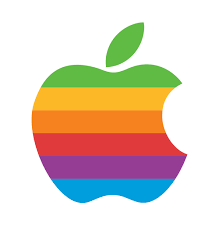
There is a steady rumble of rumors and speculation around a VR headset from Apple. Such a release would be the first major new product category for the firm since the hugely successful Apple Watch.
Tech observers are watching closely to see what Apple will release because – like how the Apple Watch helped legitimize and normalize wearable tech – a mixed reality headset made by Apple could turbocharge participation in virtual reality and the metaverse, which are being heralded as the next generation of the internet.

While reports have suggested an Apple VR headset will be standalone (meaning it won’t need to be connected to a computer or smartphone), it’s safe to assume many of the product’s early adopters will be current Apple customers, who tend to be loyal to the brand’s tech. YouGov Profiles data reveals how current Apple iPhone users feel about virtual and augmented reality compared to other consumer groups.
While there are no dramatic differences, Apple users are statistically more likely to think that VR and AR technology allows people to experience products and services before they buy them (54%), compared to Android users (52%) and the general public (52%).
Further, 51% of iOS users agree that AR is useful to people due to its real-world applications, more so than Android users (49%) and the general public.

A third of Apple users think online shopping will be more fun with AR, which is roughly in line with Android users (32%) and the public at large (33%).
Reports from reputable tech writers indicate Apple is going to price its initial headset as a premium product, perhaps above $2,000, which is substantially higher than current VR headset prices. This tactic is not new to Apple, which has a lengthy track record of entering segments late with a premium product at a premium price.
Current iOS users are more likely to spend more on consumer goods, YouGov data shows. Three-quarters say they don’t mind paying extra for good quality products (74%), compared to 69% of the general population. Two-thirds say they sometimes spend more on extra little things they don’t need (65%), compared to 61% of general population. And three in ten are willing to pay more for luxury brands (30%), slightly more than the 28% of the general public who are willing to do so.
Apple’s headset will very likely mark a significant leap forward for virtual reality, if the company’s past entrances into other segments is any indication. The iPhone is the standard bearer for smartphones today, the iPad is synonymous with tablet computers and the Apple Watch is the most popular smartwatch on the planet. Apple’s combination of loyal customers and tech know-how could be just the formula to tip VR into the mainstream.
Sourec:YouGov Profiles


